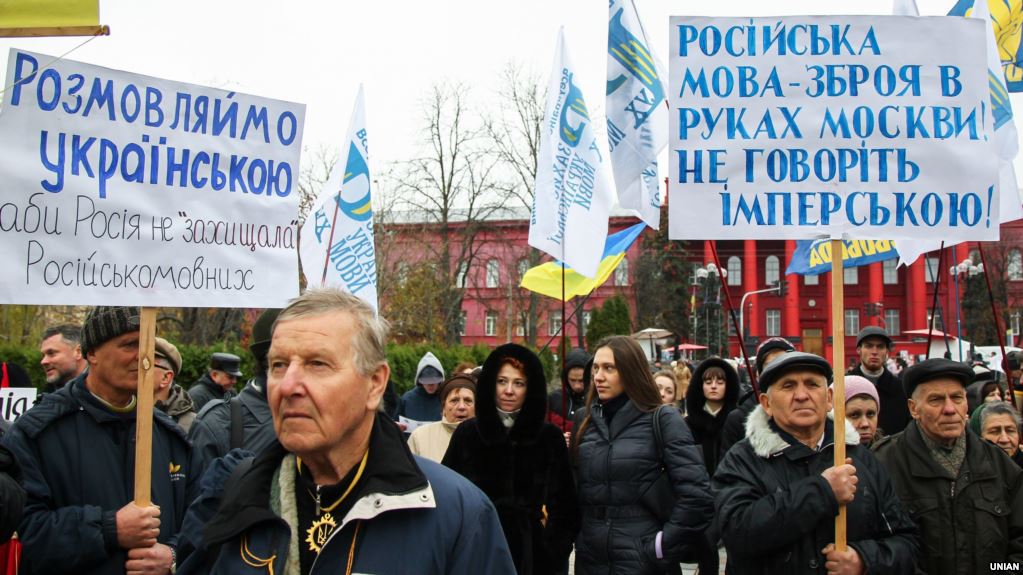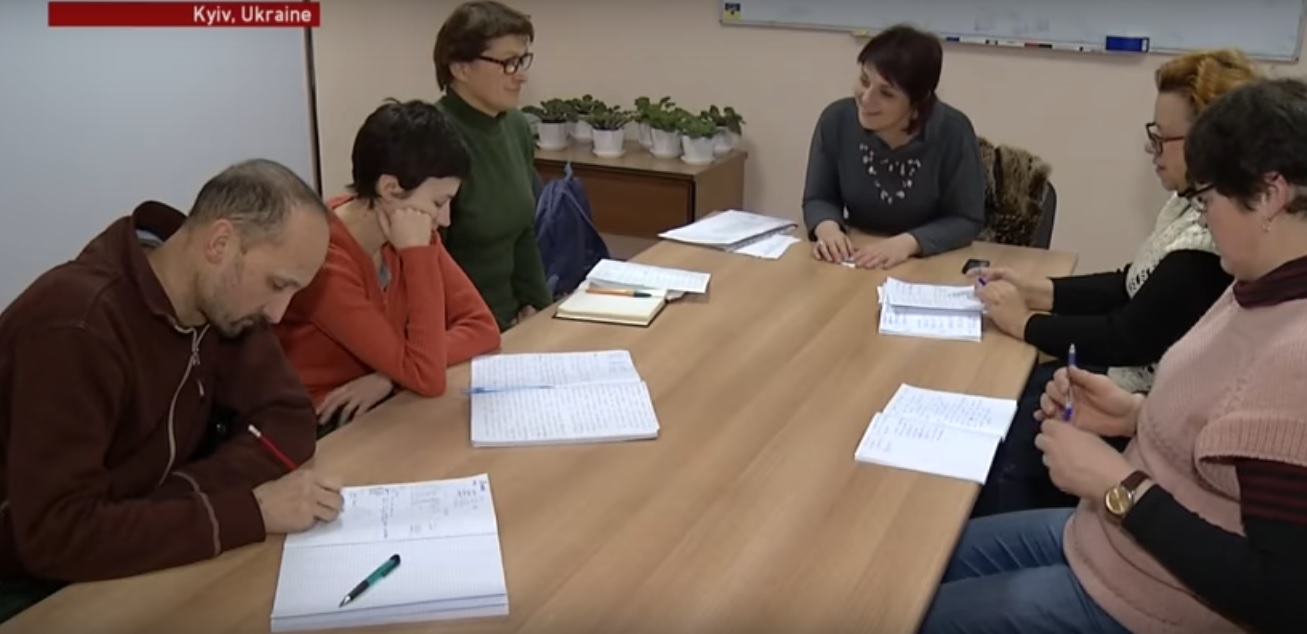By Yuriy Dzhygyr
This law (“On Regional Languages”), introduced in July 2012, states that communities with over 10% of any ethnic minority in their population may declare the language of this minority as an official regional language for their region. This means that this region would use it locally as a formal alternative to Ukrainian, e.g. for bureaucratic procedures.
In theory, this is a brilliant idea, but things get more complicated once we look beyond the surface. The approval of the law spurred massive protests, and although I did not participate in these protests, I personally was truly mad. I always thought of this Law as nicely packaged cheating, and here is why.
This law was not designed for the convenience of citizens; this law was designed for the convenience of bureaucrats. In other words, it did not make bureaucrats talk to people in the people’s languages, it worked in the opposite way – it required people to talk to bureaucrats in the bureaucrat’s language (Russian).
First, we need to remember that Ukraine is home to many ethnic minorities, including Romanians, Bulgarians, Hungarians, Greeks, Tatars, Jews, Poles, Belarusians, Albanians, and Germans. Under this law, almost all of these ethnic minorities failed to give their languages a regional status. There were only three exceptions: a town in Transcarpathia managed to declare Hungarian as its local official language, and two villages gave a local official status to Romanian. Other communities which attempted to promote their native languages were obstructed by oblast Governments appointed by the Yanukovych administration. An example is the failure of repeated requests of the Bulgarian communities in the South to promote the Bulgarian language; every attempt was blocked.
After numerous scandals caused by similar sabotage, one of the top speakers of the Party of Regions, Mr. Chechetov, publicly stated: “In our country, 46 million understand one of two languages: Russian and Ukrainian. They do not understand Bulgarian, or Hungarian, or Romanian, or Jewish, Yiddish, or whatever it is called. These other languages are understood by only a handful of people. We are talking about two languages, which are understood by the entire nation.”
Several regional councils have indeed voted for a regional status to the Russian language, but not all of them. In fact, Crimea did not use that law. Crimea did not declare Russian as their regional language because it was hard to explain why they would not simultaneously recognize the Tatar language as well. Obviously, local bureaucrats were not happy to suddenly having to learn the Tatar language.
I am trying to argue the point that this initiative was very hypocritical, controversial, and was not for the benefit of citizens but rather for the benefit of the bureaucrats.
Finally, cancelling this law was outrageously stupid. First of all, the law was dysfunctional and essentially dormant for several years; there was no urgency whatsoever to suddenly repair it. Secondly, the timing of the cancellation was highly controversial/disruptive; the law clearly symbolised pro-Yanukovych thinking throughout Ukraine’s East and South, and supporters of his administration felt immediately under attack.
The hasty cancellation of the law was met with wide public dissatisfaction. In view of this reaction, coupled with the escalation in Crimea, the President has suspended the signing of the cancellation of the law, which effectively means that the law remains valid. The Parliament has also set up a working group to develop appropriate amendments to the law, rather than cancel it altogether. The working group includes one representative from each Parliamentary faction and an open group of independent experts. The amended draft law should be submitted for voting on 11 March 2014.
https://www.facebook.com/yuriy.dzhygyr/posts/10202465820640881
Edited: Alan J. Beckett




